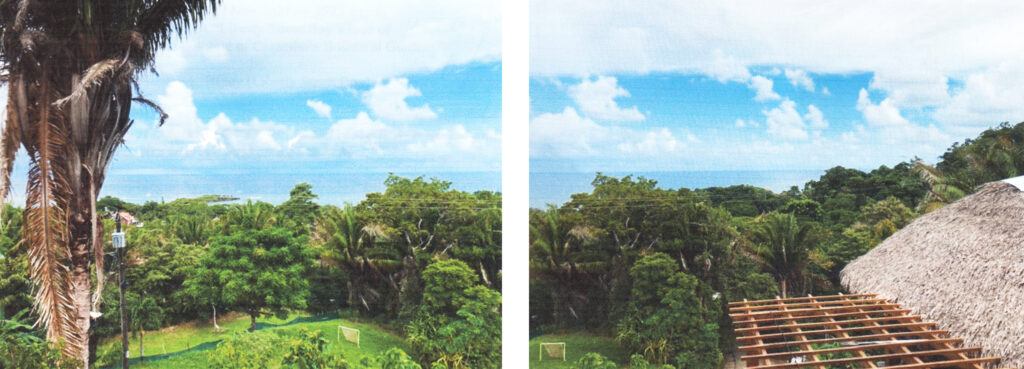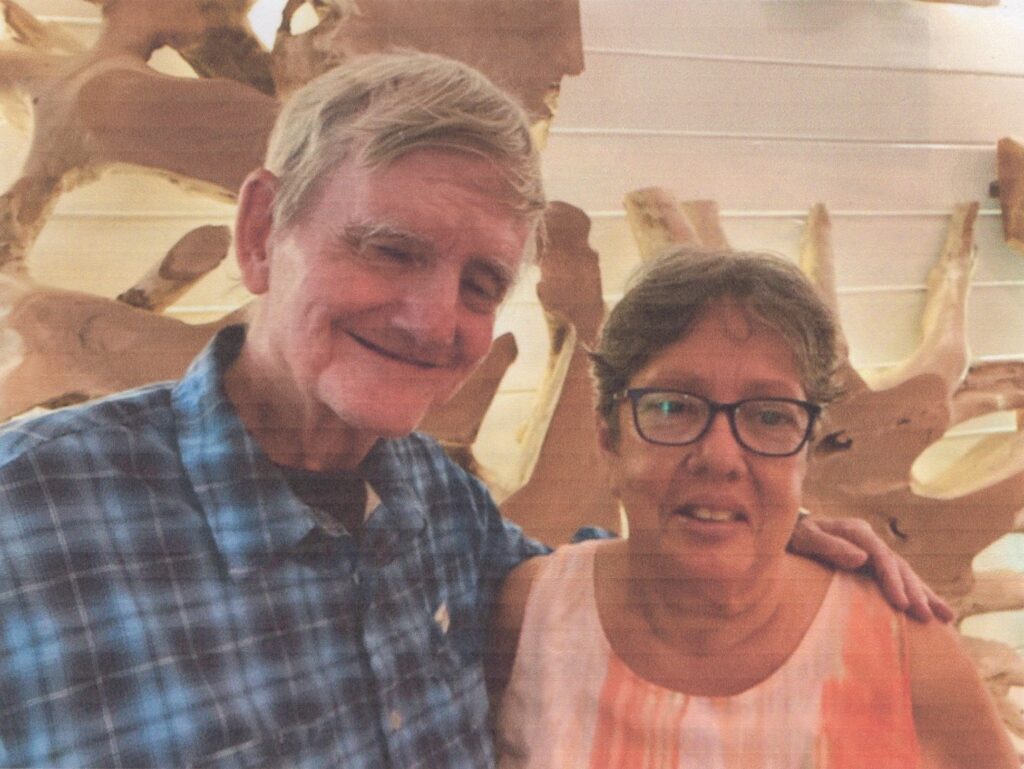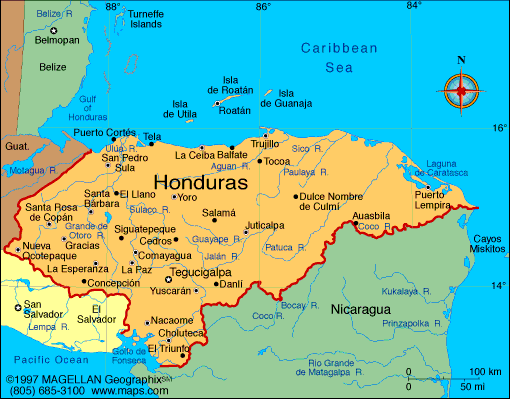by Gordon Brady
With Introduction by WT Cox
I am amazed at the impact and contributions that many Ramseur natives have had on society, not only in North Carolina but national and international. People who grew up here in our small town have impacted our world in a lot of different ways. This is a story of Ramseur native Willie Brady and his life experience that has gone from a small town to the Peace Corps during the time of the Viet Nam War and to a small island in Central America that eventually would become his home. Willie’s life is documented from his time growing up on Liberty Street in Ramseur to his transition to builder and conservationist on his adopted island home or Roatan. His Carambola Garden is a mixture of botanical wonders and nature trails that entice cruise ship passengers as well as travelers from around the world. Willie has managed to improve the lives of countless people and give back to nature at the same time. His story is told by his childhood friend and Ramseur economist Dr. Gordon Brady, who has a story of his own that we hope to tell in future issues.
This mini-biography of William Parks Brady (“Bill” aka “Willie”) is a “labor of family pride.” It is based on discussions with Bill, his family, and my somewhat “rusty” reflections and impressions of events and people over 70 years. I recently had the privilege of a 5-day visit with Bill at his family home in Roatan, Honduras. Aside from growing up on Liberty Street, we are descendants of Jesse Alfred Brady (1867 – 1943), elected for two terms as sheriff of Randolph County (1922-24 and 1924-26).
Part of growing up in the 1960s was watching each episode of “Gilligan’s Island.” The story goes — caught in a storm on a three-hour cruise, seven castaways washed ashore on a tropical paradise. Its 99 episodes (1964-67) focus on the efforts of an unlikely mix of characters trying unsuccessfully to leave their island paradise – Bill Brady’s story is the reverse. Bill is the professor — in this case an expert in architecture and botany. A central role is played by Irma, Bill’s wife of 42 years — best friend, mother to his children, business partner, and advisor. My role is to tell the story of a “Liberty Street boy” who found paradise, but unlike Gilligan, Bill and Irma chose to stay in their island paradise. They married, had a family of three (Matthew, Nicole, and Gisselle), and built a life around preserving the ecosystems of Roatan, commercial, and philanthropic projects. Irma has won awards for her many environmental and educational contributions to Honduras.
Bill’s introduction to Roatan came by accident. In 1970 Bill joined the Peace Corps after graduating from North Carolina State University with a degree in architecture. In a process over which he had little control, Bill “landed“ on Coxen Hole, Roatan on a mission to help the locals with housing. It took only a short time for Bill to be fall in love with his newfound island paradise… soon he was hooked. Now, nothing could take him from the island paradise.
Bill loved his newfound home, but also made every effort to bring some is his loves to the island… one was baseball. He started the first organized team on the island and soon had a thriving construction business as well. He became involved in philanthropic and charitable activities and soon met his future wife. He was married in 1979 and had three children. Over the next 50 years he was instrumental in much of the development on the island, including the establishment of an ecological preserve that he named Carambola Botanical Gardens.
Bill was the first son of John Emmett “Bill” Brady, Jr. (1914-1957) and Roselea Parks Brady (1915 – 1995). Linda Brady Burgess was the first, then Bill, and finally John Emmett III(aka Nicky). Bill grew up in the home of his grandparents John Emmett (1870 – 1963) and Lydia Ann Thomas Brady (1874-1954). Bill’s grandfather was my great uncle, a man with whom I enjoyed many conversations about the origin of the Ramseur Brady’s. The Brady’s were primarily Scotch Irish having moved to Ramseur from Bennett in the late 19th century.
Bill grew up in a home designed and built by his grandfather John Emmett Brady, Sr. John Emmett Sr., who was a successful builder, developer, and businessman (he owned the furniture factory in Ramseur). He instilled in his grandson a love of function, design, and carpentry. I well remember two of John Emmett’s inventions. He built a two-story hen house and designed a mechanism to transfer the eggs to a central depository on the first floor. This freed the family to focus on other activities including a grape arbor, unusual plants, and many species of trees.
I always marveled at John Emmett’s black iron structure to store ice for the summer. Like John Emmett, the icehouse had a long life and was removed in the 1970s.
Early on Bill developed an interest in baseball through his family and the Ramseur community. John Emmett’s children were very athletic and accomplished in baseball and golf. Bill’s uncle Clarence L. Brady (1895-1913) died from a baseball injury.
Bill was a very solid student (“Beta Club”), well-liked, and athletic. Academics and sports occupied much of his time. Bill and his brother Nicky developed a game similar to baseball which they called “lemon ball.” The game was played with baseball bats and a plastic lemon juice dispenser shaped like a lemon, hence the name lemon ball. It became quickly popular on Liberty Street but to my knowledge, it did not catch on outside Ramseur.
E.C. “Zeke” Tatum (1926 – 1995) who taught Ag and shop at the Ramseur School was a strong influence on Bill’s artistic and architectural talents through carpentry, assembly, and presentation of projects. These skills played an integral role in the roads he was later to travel and became the foundation of his great accomplishments. In addition to one-on-one learning from Zeke to Bill, membership in the Future Farmers of America and summer jobs became an important avenue for Bill’s development. Bill was co-founder of the Science Masters and benefitted greatly from the guidance of science teacher William A. Barbour.
A summer job with Asheboro architects Hyatt Hammond and Alvis George provided firsthand exposure to the world of professional architects and builders. He became immersed in the process of project development, implementation, and presentation. While working for Hamond and George, Bill met Ramseur/Randolph County legend Oscar King (1899 – 1985) a skilled builder, pipe fitter, and general jack of all building trades. But more than this, Oscar was legendary for his ability to interact/coach workmen, contractors and leaders of municipal governments. Bill credits King with instilling an approach to maximize cooperation to complete projects.
Bill attended the Ramseur Baptist Church and was a member various organizations including the Royal Ambassadors, a youth group. Bill very much enjoyed RA camping trips and church activities such as bowling and a baseball team.
School and the Baptist Church played a strong role in Bill’s interest in sports and “healthy” competition. The Brady’s had always been active, but several had the potential for the leagues outside the community. Bill had a number of colleagues who contribute to the story. Tim Wright, Larry Moody, Wayne Siler were some of his closest friends during his Ramseur years…
People of my generation remember Bill’s efforts to update the facade of the family home with a huge parachute which covered the long front porch of the family home on Liberty Street. Bill and several friends stretched a giant parachute across the huge front porch which surrounded the front porch. Bill describes the motivation as “let’s see if we can do this, how to do it, and how to overcome any resulting problems. The home soon became a “clubhouse” for the Ramseur boys to hang out in. The community became suspicious that great mischief was taking place behind the veil. This led to an investigation by local police Ott Gant and Wiley Craven. Soon, the rumors of mischief were dispelled and the home was once again a meeting place for teenagers and young people. On Sundays, Liberty Street would be full of young people playing “beach ball” from the brick wall that separated the yard of the home from Liberty Street.
While many boys his age were going into the military, Bill chose to go into the Peace Corps. It soon became apparent that getting accepted into the Peace Corps was not as easy is it may seem. Not wanting a “bad apple” to spoil their image in host countries, the Peace Corp sought appointees of high moral character and unassailable integrity. They also wanted a fit between appointees and the challenges of the projects and the regions to which they were sent.
Bill’s desire was to improve the life of the people on the island, preserve fragile Roatan ecosystems, AND “play baseball”. He introduced Little League programs for the youth to the island. Bill and his wife Irma also became heavily involved in environmental issues. One of their first projects was to mount an organized effort to stop the burning of clear-cut land clearing.
Bill got a good match with his wife Irma. She is a lifelong resident of the islands and has won many environmental awards for her leadership in environmental and educational issues. Her concern for the threats of development to Roatan ecosystems resulted in her founding the Bay Islands Conservation Association, a grassroots organization to promote the sustainable use of the island’s resources, monitor environmental impacts, and ensure that development doesn’t come at the cost of irreplaceable habitats. BICA grew in scope and influence over the years under Irma’s leadership, and now has chapters on both Utila and Guanaja, Roatán’s neighboring islands. It also manages the Sandy Bay West End Marine Reserve, the site of our most recent project in Honduras.
Serving as a field evaluator, Irma has long worked with the local and national Ministry of Environment to certify proposed development projects on Roatán as sustainable before they are approved. She remains a strong advocate in protecting Roatán’s remaining coral reefs, mangroves, and other critical coastal environments from poorly designed developments. Her role has often brought her into conflict with developers and politicians, but her tenacity, knowledge of the issues, and broad community support have repeatedly won out and helped foster a culture of sustainability on the Bay Islands. Aside from the central role she plays at Carambola, she is deeply involved in the Port Royal Wildlife Refuge, a terrestrial wildlife preserve, and the Carambola Botanical Garden, which offers free tours to local children to build appreciation for Roatán’s unique flora.
Bill became known as the “Gringo” who played baseball and promoted the sport as part of Roatan culture. His projects in Roatan included designing schools, churches, municipal water systems, and bridges. Today there are many options to play sports in Roatan, including soccer, football, baseball, rugby, and softball. But in the early 1970s when Bill arrived, there were very few. Seeing this as an opportunity, Bill took it upon himself to make a difference. Aside from his day job” he found time to organize a Little League Baseball League – composed of six teams across the island.
He formed a baseball team of islanders. In addition to coaching Little League, Bill raised money to buy uniforms and saw it as an opportunity to pass along his love of baseball to the youth of Coxen Hole.
Eventually, Bill and Irma were able to acquire a 41-acre swatch of land and establish a botanical preserve. The name Carambola was chosen due to its unique star shape star-fruit composed of “five fingers.” Technically, it is known as the fruit of Averrhoa carambola, a species of tree native to tropical southeastern Asia.
The development of Carambola Botanical Gardens was a new direction for Bill’s career work moved into the realm of cultivation for beauty as well as export. Bill’s vision for the Gardens itself was shaped by his architectural training, love of plants especially trees, and their role in ecosystems.
Today, Bill’s Carambola Garden preserve is a major tourist attraction on the island of Roatan and is a must-see destination for many of the thousands of tourists that visit the island via cruise ships every year. Many visitors come by air from all corners of the globe to visit the preserve and observe some of the botanical wonders that are only found on Roatan.
While Bill is right at home in his adopted island paradise, his thoughts still reflect back to his growing up in Ramseur. The values learned, faith, family, friendship, and commitment are Ramseur traits that now are a part of this island culture thanks to Bill.



